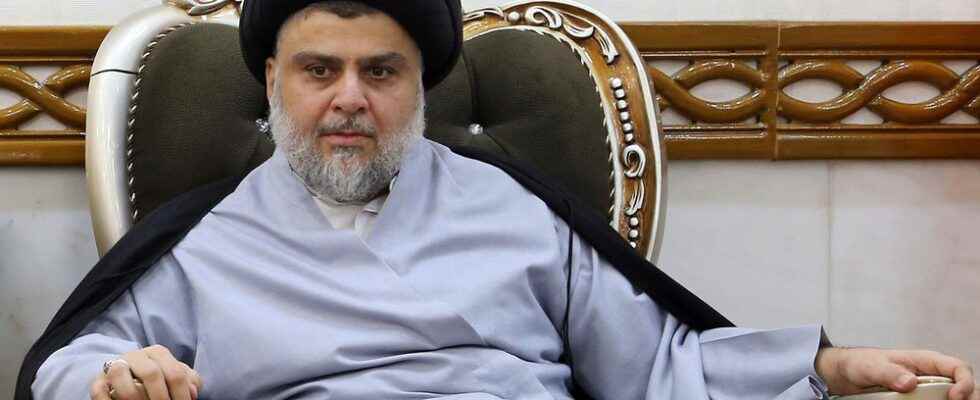One of his sentences was enough to put an end to the revolt. “This is not a revolution, I call on all my supporters to leave the fighting within sixty minutes,” Moqtada Sadr proclaimed on Tuesday August 30. A few minutes later, his supporters had deserted the “green zone” in the center of Baghdad, the heart of Iraqi political power. The charismatic Shiite leader thus demonstrates his ability to make and undo revolutions in Iraq, a country which remains at the mercy of a civil war despite the precarious calm of its capital.
The day before, Monday August 29, Sadr had set fire to the powder by announcing his withdrawal from political life, after ten months of government blockage. During the October elections, his party had obtained a majority but proved incapable of forming alliances and has been demanding, in recent months, the total resignation of elected politicians and an overhaul of the system of governance in Iraq. Already at the end of July, his supporters had occupied Parliament for several days.
Risks for the whole Middle East
For supporters of the Shiite leader, his political resignation on Monday gave the green light to arms. Thousands of them stormed the presidential palace and the main buildings of Iraqi power, armed with guns and rocket launchers. Opposite, the army found itself overwhelmed and proved, once again, its inability to hold the country.
After 23 dead and hundreds injured, only Sadr’s call for calm restored calm and allowed the military to lift the national curfew. Waiting for the next… “The Iraqi political system is on the brink of irreversible collapse,” said Ranj Alaaldin, Middle East researcher at the Brookings Institution. brought the country to the brink of civil war. Conflict now seems inevitable and would have consequences not only for the reconstruction of Iraq, but also for the stability of the Middle East as a whole.”
Since the American invasion of 2003 and the fall of Saddam Hussein, Iraq has failed to find a stable political model. For the United States, which came to “bring democracy” and left Baghdad in 2011, the long-term failure is total. The political and confessional mosaic of Iraq is struggling to rebuild the country, unable to agree between Shiite, Sunni, Kurdish parties, pro or anti-Iran…
Populist leader Moqtada Sadr in Najaf, Iraq, June 23, 2018
afp.com/Haidar HAMDANI
The personal fight between two men illustrates these fractures: the Shiite leader Moqtada al-Sadr, a 48-year-old former militiaman and son of the ayatollah, facing Nouri al-Maliki, former Prime Minister nicknamed “the new Saddam” by the Iraqis. The two men came first and second respectively in the October legislative elections. “The conflict between them is clearly personal,” says Ranj Alaaldin. last.”
After the fighting of the last two days in Baghdad, the stabilization of Iraq will perhaps come from the countries of the region. The Gulf States, like Iran, have no interest in seeing the situation degenerate in their huge neighbor and have welcomed al-Sadr’s speech. Conversely, Turkey is accused of stirring up tensions in order to be able to continue its fight against the Kurds in northern Iraq. But Ankara would also have no interest in seeing a civil war break out on its doorstep, and millions of refugees fleeing its big neighbour.
